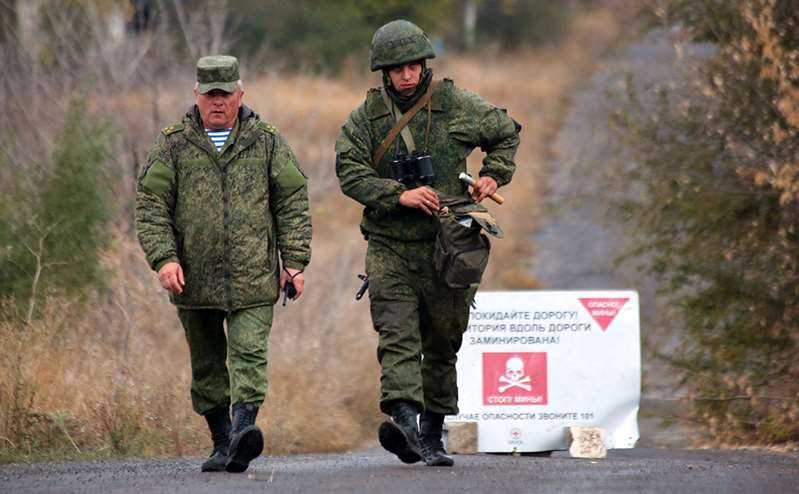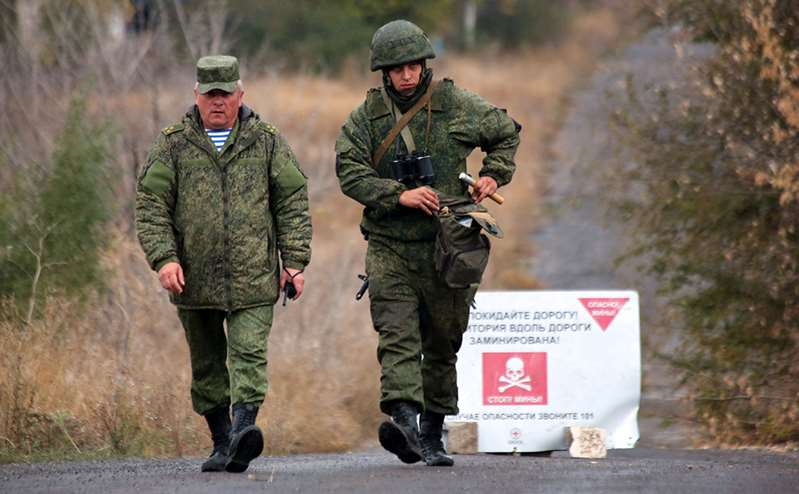
Why a contact group meeting could be disrupted

On Wednesday, March 31, the next meeting of the Trilateral Contact Group (TCG) on the settlement of the conflict in the south-east of Ukraine is to be held, but Kiev has already announced that it will not participate in the negotiations, which have recently been held in video mode, since the delegation is not recognized The Donetsk People's Republic includes Maya Pirogova, who was convicted in absentia by Ukraine for terrorism. “Our position is clear: we will not work while a terrorist is taking part in the consultations,” Andrey Kostin, a representative of Ukraine in the political subgroup, said in an interview with Interfax-Ukraine.
The Ukrainian delegation had previously left the negotiations in protest against Pirogova's participation in them. Then the representative of Kiev Sergey Garmash explained that on March 17, in different formats, the parties discussed for five hours the possibility of such persons participating in the TCG negotiations.
At the same time, on Tuesday representatives of the parties (Ukraine, Russia, OSCE, unrecognized DPR and LPR) worked in subgroups on security, economics, political and humanitarian issues. In the economic subgroup, it was planned to discuss issues of water supply and payment of pensions by Ukraine to people living in the territory uncontrolled by Kiev. The subgroup on security was supposed to discuss issues of violation of the ceasefire.
Since the beginning of the year, the OSCE has recorded over two thousand cases of ceasefire violations along the contact line per month. On March 26, one of the most serious incidents in the past few months took place – as a result of shelling near the village of Shumy, four Ukrainian soldiers were killed. After that, Ukrainian President Volodymyr Zelensky announced that he would hold talks on this topic with the leaders of the Normandy Four countries (Germany, Russia, Ukraine, France).
Late in the evening of March 30, the Kremlin announced that a conversation had taken place between the leaders of Russia, Germany and France, Vladimir Putin, Angela Merkel and Emmanuel Macron. “In the course of a detailed exchange of views on the situation in Ukraine, it was confirmed that there is no alternative to the 2015 Minsk Package of Measures as the basis for resolving the internal conflict in this country,” the statement said following the talks. Moscow also stressed the importance of direct dialogue between Kiev and Donetsk and Luhansk. In addition, Moscow expressed “serious concern over the escalation provoked by Ukraine.” “The leaders' political advisers will continue to work together,” the message says. The leaders of the countries discussed other topics as well.
Earlier in Kiev, it was noted that only the full complement of the “Normandy format” can agree on a settlement, but Moscow clarified that this trilateral online meeting is a separate event, and not a stripped-down version of the “Normandy Four”.
Is it possible to get out of the impasse
It is not possible to achieve results in the settlement due to the fact that the parties accuse each other of not fulfilling the Minsk agreements concluded in 2015, as well as because of their discrepancy. Kiev insists that it is impossible to fulfill the agreements in accordance with the established procedure, they need to be revised. In addition, Ukraine is trying not to deal with representatives of the DPR and LPR as a party to the conflict, preferring to solve the problem with Russia directly through the mediation of European countries.
The last attempt to overcome the contradictions and bring the discussion to a productive channel was a proposal received at the end of last year from France and Germany, which proposed breaking the Minsk agreements into so-called clusters and agreeing on the sequence of their implementation, the Kommersant newspaper wrote. However, this idea has not yet helped to advance.
On Tuesday, the press secretary of the Russian President Dmitry Peskov once again stated that it was Kiev sabotaging the work on the settlement.
For six years, the contradictions between the parties have not become deeper, they were fundamentally laid back in 2015, Ukrainian political scientist Volodymyr Fesenko is sure. “Yes, the situation now looks like a dead end. But the way out was proposed back in December 2019 (at the last meeting of the Normandy Four – RBC ) – not a complete, but a partial update of the Minsk agreements so that mutually acceptable positions on the border can be found, and so on, ”he said. But Moscow refuses, and what Russia is striving for is impossible to accomplish, Fesenko said. “And it's not about political will. Thus, the clause on securing the special status of certain areas of Donetsk and Luhansk regions in the Constitution, whoever is the president of Ukraine, will never gain two-thirds in parliament, this is simply impossible, given the balance of power in Ukraine, ”the expert notes. The way out of the situation, he adds, could be a complete cessation of hostilities, “as in Transnistria”: “But this does not work out for obvious reasons – because aggravations and military actions are used to put pressure on the internal political situation in Ukraine.”
Why the position of Kiev has become tougher
In early 2021, Kiev took a tougher stance towards Russia. In February, sanctions were imposed against Ukrainian politicians with a reputation for being pro-Russian, and licenses were revoked from three popular opposition channels – Zik, NewsOne and 112 Ukraine, owned by Opposition Platform – For Life (Opposition Platform – For Life) MP Taras Kozak. Sanctions were also imposed against the godfather of Vladimir Putin, co-chairman of the HLP Viktor Medvedchuk and his wife, TV presenter Oksana Marchenko.
Last week, Kiev imposed sanctions against ex-President of Ukraine Viktor Yanukovych, ex-Prime Minister Mykola Azarov, head of Crimea Sergei Aksenov and others. At the same time, two important doctrinal documents were adopted, one of which is the Military Security Strategy, which states that accelerated defense reforms should help Ukraine join NATO in order to defend itself against Russia, the country's main military adversary. The second document – “Strategy for the de-occupation and reintegration of the temporarily occupied Crimea” – states that Kiev will apply measures of “diplomatic, military, economic, informational, humanitarian and other nature” to return the peninsula.
A fairly voluminous part of the document is devoted to humanitarian initiatives for Ukrainian citizens living in Crimea, “in the temporarily occupied territory.” But at the same time, it is noted that the water supply to the peninsula will be restored only after the establishment of the Ukrainian constitutional order there.
In February and March, the Ukrainian authorities began inviting European and other leaders to the Crimean Platform summit, which is to be held in August, on the 30th anniversary of Ukraine's independence. The idea of the event is to introduce the topic of the return of the peninsula into the negotiating field. Zelenskiy has repeatedly lamented that, unlike Donbass, the possibility of returning Crimea is not seriously discussed.
The project of “an international platform that would coordinate the struggle for Crimea” is not new, says Fesenko. “This is done for one simple reason – Ukraine has not recognized and will not recognize the Russian status of Crimea. And in this case we are talking about the struggle for this status, because Russia is trying to reconcile everyone de facto with the fact that everything has already been decided, ”he says and adds that an attempt to raise the topic of Crimea can now be linked to the situation within the country. “Now Zelensky is showing voters that he is doing a lot that his predecessor did not do,” he is sure.
Over the past year, the rating of Ukrainian President Volodymyr Zelensky has decreased – according to a survey conducted by the sociological group “Rating” on March 23-24, if the elections were held next Sunday, 24.7% would support him, 13.9% are ready to vote for Petro Poroshenko %, for the rest – even less.
When Zelensky came to power, he did not have political thinking, he thought that “the two neighbors had a fight, now we just need to meet, look each other in the eyes, talk and make peace,” says Ukrainian political strategist Serhiy Gaidai. “Now the head of state understands that these were amateurish thoughts, this does not happen in politics,” Gaidai explains why, in a little over a year, Zelensky was forced to take a tougher position in negotiations with Moscow. “Any Ukrainian government, any president will be doomed to exacerbate the situation,” the expert concludes, noting that the coming to power in the United States of Democrat Joe Biden, who was actively involved in Ukrainian politics while still being US Vice President, could have contributed to this. Settlement in Donbass will be possible only after the change of power in Russia, Gaidai is sure.

